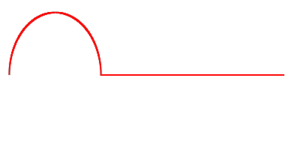
- Image via Wikipedia
I used to believe that everything equaled out in the end. That at some point, everyone would get the same amount of opportunity or talent. I used to think that we were all special in enough ways to allow for everyone to have the same chance of success. I don’t believe that anymore.
I once was talking to a very good friend about our test scores over the phone. He told me about how good his math scores were. I saw that they were better than mine, and in my need to make everything even out, I proclaimed that I had very good english scores. As it turned out, I did have good scores. He just had better ones. In both English (which I cared a great deal about) and in Math (which I didn’t care all that much about) he was better. I couldn’t reconcile this disparity. I kept on looking for a silver lining, a way in which his life overall was worse than mine or that I could feel superior so that this defeat would hurt less. I still haven’t found a way to make those kinds of stings any less potent.
Instead, I now believe that instead of an equation with an a person on either side of the equal sign, it is most likely a greater than or less than sign. This is a crude judgement, but it is in fact a much more accurate representation of the way in which we experience all people. Somewhere within our heads, we do an estimation of greater than or less than. We look for links from one person or idea to another, but we are not looking for them to be the same. We are looking for ways to categorize, to prioritize and to put them into a hierarchy. We can’t help but be a part of this lopsided equation every moment.
And yet, it is hard to tell which side of the equation we are on at times or what is really being compared. I may be really good at getting my ideas across, but utterly fail in having revolutionary ideas in the first place. These things are not equal. One is greater than the other, but it depends on who is setting up the equation.
The point is:
The greater than or less than equation is a little agreement within ourselves to treat some things and people with more respect and attention than others. And in the interest of creating a more collaborative and sharing society, I believe we owe it to one another to state our equations as loudly as we possibly can. If all bias can be boiled down to an equation with a little arrow pointing one way or the other, we can actually identify what it is that moves us and what it is that we need help with. With that in mind, here are a few equations that I believe to be true.
My children > other people’s children
Open Source > Closed Source
Community > Isolation
Publishing > Notebooks
Notebooks > Not writing/drawing/reflecting
Independent > Corporate
Corporate > Undervalued
Revision > Final Draft
Trust > Suspicion
Hope > Tradition
Change > Success
Failure >= Success
Music >= Silence
Stress > Pressure
Lo-Fi > Hi-Def
Family > Career
There are lots more, but I do wonder what would happen if we all laid out our equations on the table and started talking about them. Would any of us change the directions of the arrows? Would we be able to generate our list of the most important things in our lives, our priorities of a lifetime rather than just of the moment. I feel as though that might be important.


I've started explicitly telling people I need them to tell me what they need. I qualify it with, “That doesn't mean I'm going to change what I do to meet your needs, but I want to know what they are.” This falls in line with what you're talking about. Many people don't know what to do with that question when I ask it.
Many people don't know their needs or haven't taken the time to articulate them. They know where they want to be (sometimes and sort of), but they don't rightly know what they need to get there.
My friend once complained about her boss saying, “I need direct communication.”
I do too.
I've started to say that upfront. Again, it doesn't mean I'll get it, but not stating my own needs means I'm far less likely to have those needs met.
You = Correct.
Interesting concept. If someone were to participate, it could be a very in-depth exercise in self-reflection. It would be a cool cross-curricular activity (adapting it according to the level) with math and psych. I think it is a fast check point as to where you stand in certain areas that may change with time or stay the same.
Yeah. Maybe as an anticipatory set or a beginning of the year activity. I
like the idea that we could get all of our biases out on the table before
they start to claw at each other without knowing what they are. Hmm… I
haven't written a lesson plan in a while, but maybe it is time.